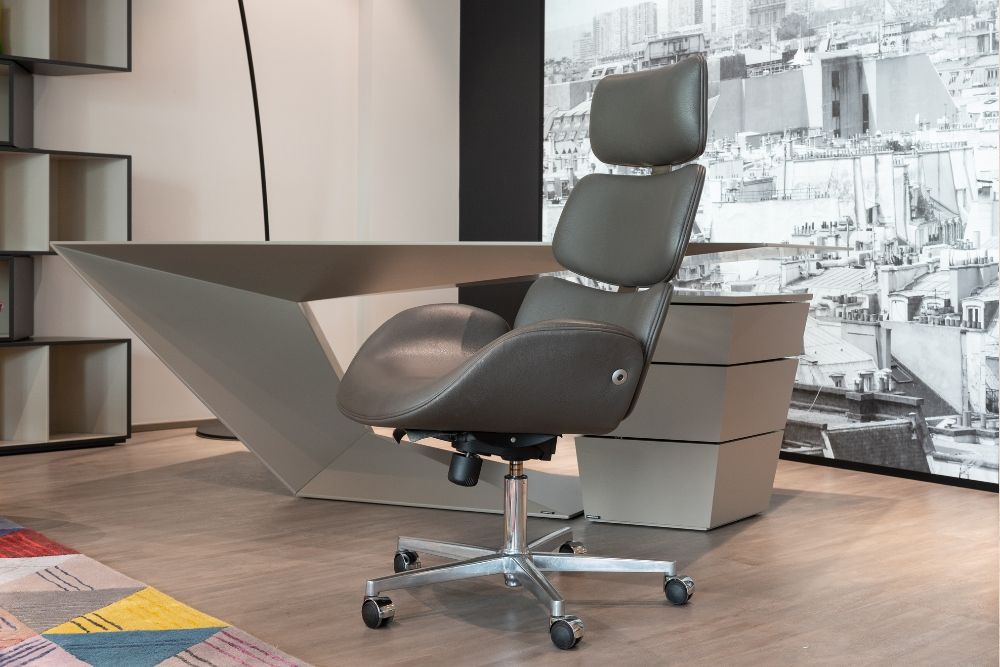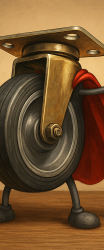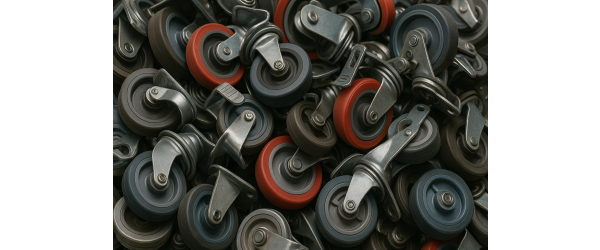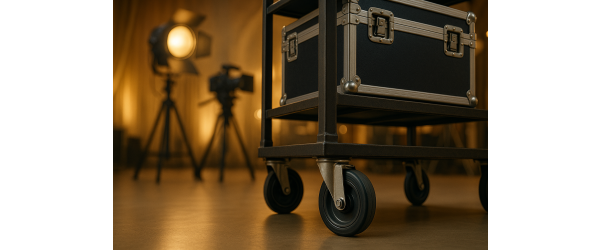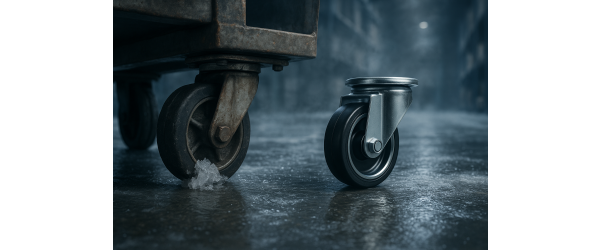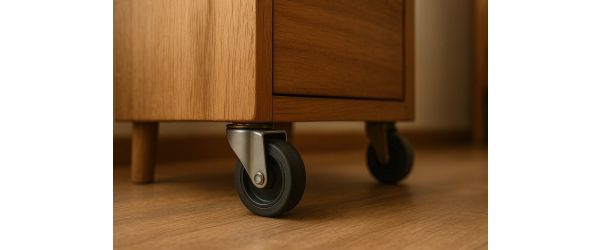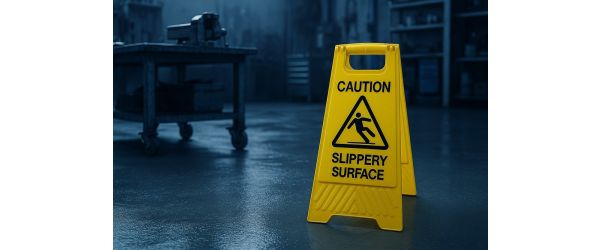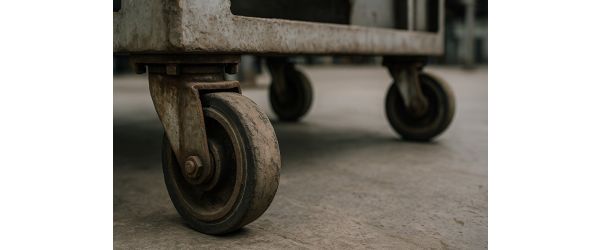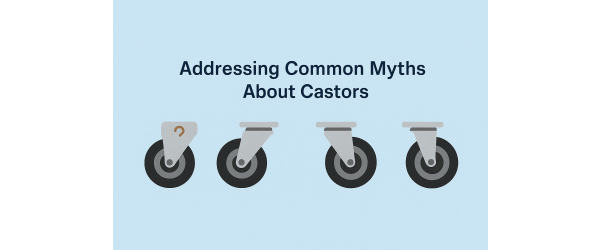Whether in an office or home workspace, the floor surface plays a significant role in how well roller castors perform. Choosing the right type of roller for your desk chair can enhance movement, prevent floor damage, and improve overall comfort. In this blog, we’ll explore the impact of different floor surfaces on roller castor performance and discuss how to select the best replacement rollers for office chairs.
1. Hardwood Floors
Hardwood floors are popular in offices and home spaces alike, but they can be prone to scratches and dents. Roller castors that are too hard or inflexible can damage these surfaces over time.
- Optimal Roller Type: Soft roller castors are ideal for hardwood. These castors are designed to glide smoothly without causing scratches or leaving marks. Rubber or polyurethane rollers are great choices as they reduce the risk of damage and provide quiet, smooth movement.
- Maintenance Tips: Regularly check for debris caught in the castors, as small particles can get dragged across the floor, causing scratches. You may also consider using a floor mat under your chair to protect the wood and prolong the life of the castors.
2. Carpeted Floors
Carpet can create extra resistance for roller castors, particularly if the carpet is thick or plush. Over time, desk chair rollers may sink into the carpet, making it harder to move smoothly.
- Optimal Roller Type: For carpeted surfaces, consider using larger diameter castors or dual-wheel roller castors. These types are built to reduce rolling resistance on soft surfaces and distribute weight more evenly, making it easier to move across the carpet.
- Maintenance Tips: Vacuum around your workspace regularly to remove carpet fibres or dirt that may get tangled in the castors. For particularly thick carpets, you may benefit from using replacement rollers designed explicitly for this type of flooring.
3. Tile Floors
Tile floors are durable but can be slippery. Using the wrong type of roller castor on tiles can lead to unstable movement and even scratching on certain tile surfaces.
- Optimal Roller Type: Soft, non-marking rollers work best on tile floors. Rubber castors are an excellent choice because they prevent slippage and won’t mark or damage the tile. For additional stability, look for rollers with a slight tread pattern to improve traction.
- Maintenance Tips: Ensure that the roller castors are clean and free of any hard debris, as grit can get caught and scratch the tiles. Periodically inspect the castors to ensure they are still in good condition and replace any that show excessive wear.
4. Vinyl and Laminate Floors
Vinyl and laminate are softer than tile but tougher than hardwood, offering some flexibility in roller castor choices. However, they can still be scratched by hard castors or those with rough edges.
- Optimal Roller Type: Soft or rubberised rollers are also suitable for vinyl and laminate, as they provide the smooth glide needed to protect the floor. Polyurethane castors are an excellent choice for these surfaces, as they offer durability without sacrificing floor protection.
- Maintenance Tips: Keep your floor clean to avoid small stones or dirt that can get caught in the castors. For laminate floors, avoid using castors that are too hard, as they can wear down the surface finish over time.
5. Concrete Floors
Concrete floors are common in industrial or creative spaces and are very tough. However, these floors can be rough, causing excessive wear on roller castors not designed for such surfaces.
- Optimal Roller Type: Hard roller castors work well on concrete since there’s minimal risk of scratching or marking. For heavy-duty chairs or equipment, look for castors with additional padding or shock absorption, as concrete floors can wear down the castors quickly.
- Maintenance Tips: Clean the castors regularly to remove any concrete dust or small stones that may accumulate. Since concrete is rougher, you may need to replace roller castors more frequently if the chair is used intensively.
6. Choosing the Right Replacement Rollers for Office Chairs
When selecting replacement rollers for office chairs, it’s essential to consider both the floor type and your specific needs. Roller castors are available in various materials and sizes, allowing you to customise the chair for optimal performance and floor protection.
- General Tips:
- For smoother surfaces, such as hardwood or vinyl, soft roller castors are usually best.
- For thicker carpet or uneven surfaces, larger dual-wheel castors improve mobility.
- Ensure the rollers are rated for the weight of your chair and any additional load you may place on it, such as leaning or heavy usage.
7. Benefits of High-Quality Desk Chair Rollers
Investing in the right desk chair rollers provides multiple benefits, including enhanced mobility, reduced risk of floor damage, and increased comfort. High-quality rollers also tend to last longer, so you can save money in the long term by avoiding frequent replacements.
The right roller castors make a significant difference in the comfort and durability of your office chair, particularly when matched to your floor type. From protecting delicate hardwood to ensuring easy movement on carpet, choosing the right castors helps improve your workspace experience. At Castors Online, we offer a variety of replacement rollers for office chairs and roller castors designed for every surface, so you can find the perfect fit for your needs.
